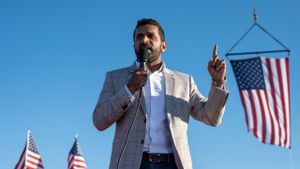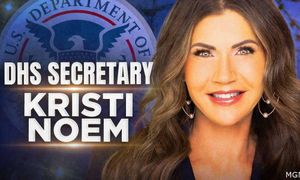U.S. President Donald Trump has announced plans for a significant meeting with Japanese Prime Minister Shigeru Ishiba, marking what is expected to be the first formal summit between the two leaders since Trump took office. The meeting is scheduled for February 7, 2025, at the White House, as both countries aim to strengthen their diplomatic ties.
Speaking during an address to reporters at the White House on January 31, Trump expressed enthusiasm for the summit, stating, "Next week, he (Japanese Prime Minister Ishiba) will come to the United States to talk to me." He went on to highlight his admiration for Japan, commenting, "I respect and like Japan very much." These remarks not only serve to elucidate the character of U.S.-Japan relations but also reflect Trump’s desire to engage positively with key allies.
Reflecting on his previous bond with the late Prime Minister Shinzo Abe, Trump added, "I was very close friends (with Prime Minister Shinzo Abe) and what happened to him was one of the saddest things." This refers to Abe's tragic death last year, which sent ripples of grief across both nations as Abe had played a significant role in fostering U.S.-Japan relations during his tenure.
The upcoming summit is seen as particularly pivotal as it will be Ishiba’s first meeting with Trump since the latter's inauguration, and he will be the second foreign leader to meet with Trump after Israeli Prime Minister Benjamin Netanyahu. Analysts believe Ishiba anticipates using this encounter to reaffirm the strength of the Japan-U.S. alliance.
While the details of the summit agenda remain somewhat vague, sources indicate several key topics are likely to be addressed. It is expected Trump may raise issues related to defense costs and trade tariffs, as the global economic conditions continue to fluctuate. Japanese companies, for their part, have reportedly been preparing to outline their contributions toward job creation and defense costs within the home market during the summit.
One significant topic under consideration includes discussions related to Japan Steel’s acquisition of US Steel, which has faced scrutiny amid concerns over industrial stability and foreign ownership of American resources. The conversations may also touch upon the need to increase Japanese imports of liquefied natural gas (LNG) from the United States, which could benefit both countries economically and serve as leverage against their regional adversaries.
Another pressing issue on the agenda will likely be the broad regional security threats posed by China and North Korea. Observers note these discussions are increasingly relevant as tensions ripple throughout the Asia-Pacific region, requiring both nations to cooperate closely on defense and security strategies.
Many Japanese media outlets expect the meeting will not only serve practical purposes, but also allow both leaders to express affirmations of their nations’ enduring partnership. The personal rapport Trump builds with world leaders has historically influenced diplomatic negotiations, and this meeting could bolster U.S. credibility and reliability as a strategic partner.
Looking at the broader historical backdrop, the relationship between the U.S. and Japan has evolved significantly over the decades. From post-war alliances to contemporary partnerships, the alliance remains headquarters for mutual aid against global competitors. The meeting between Trump and Ishiba promises to reinforce these historical ties.
While the specific discussions of the summit will be awaited eagerly by policymakers and analysts, the moral weight of shared history between Trump and Abe has set a measured tone for this upcoming dialogue. The tragic loss of Abe serves as both a reminder of the strong bond shared with Japan and as a symbol of the collaborative path forward endorsed by both nations.
Trump's clear expressions of camaraderie and respect toward Japan's leadership insulate the diplomatic space needed for substantial outcomes during their meeting. These sentiments expose the delicate undercurrents of leadership change and the pathways carved along decades of bilateral collaboration.
With these elements guiding the discussions of February 7, the expectations are high as the U.S. and Japan aim to navigate the multifaceted requirements of modern diplomacy. A united front against shared adversities hinges on the concrete outcomes of this meeting and the influence of strategic relations moving forward.



